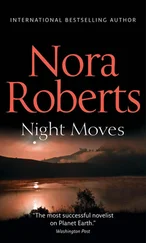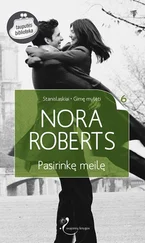
www.millsandboon.co.uk
RIVALS
Bryan Mitchell and Shade Wilder. She was America's greatest celebrity photographer. He was one of the world’s most respected photojournalists.
COMPANIONS
They were working together, traveling across the country, recording two views of one American summer. They we complete opposites. And yet they each felt a passion that was destined to draw them together.
LOVERS
It took the eye of the camera to show them how close they could become. And it took their mounting desire to lower their defenses and allow them to revel in the fulfillment of love….
Chapter One
Chapter Two
Chapter Three
Chapter Four
Chapter Five
Chapter Six
Chapter Seven
Chapter Eight
Chapter Nine
Chapter Ten
Chapter Eleven
Chapter Twelve
Epilogue
The room was dark. Pitch-dark. But the man named Shade was used to the dark. Sometimes he preferred it. It wasn’t always necessary to see with your eyes. His fingers were both clever and competent, his inner eye as keen as a knife blade.
There were times, even when he wasn’t working, when he’d sit in a dark room and simply let images form in his mind. Shapes, textures, colors. Sometimes they came clearer when you shut your eyes and just let your thoughts flow. He courted darkness, shadows, just as relentlessly as he courted the light. It was all part of life, and life—its images—was his profession.
He didn’t always see life as others did. At times it was harsher, colder, than the naked eye could see—or wanted to. Other times it was softer, more lovely, than the busy world imagined. Shade observed it, grouped the elements, manipulated time and shape, then recorded it his way. Always his way.
Now, with the room dark and the sound of recorded jazz coming quiet and disembodied from the corner, he worked with his hands and his mind. Care and timing. He used them both in every aspect of his work. Slowly, smoothly, he opened the capsule and transferred the undeveloped film onto the reel. When the light-tight lid was on the developing tank, he set the timer with his free hand, then pulled the chain that added the amber light to the room.
Shade enjoyed developing the negative and making the print as much as, sometimes more than, he enjoyed taking the photograph. Darkroom work required precision and accuracy. He needed both in his life. Making the print allowed for creativity and experimentation. He needed those as well. What he saw, what he felt about what he saw, could be translated exactly or left as an enigma. Above all, he needed the satisfaction of creating something himself, alone. He always worked alone.
Now, as he went through each precise step of developing—temperature, chemicals, agitation, timing—the amber light cast his face into shadows. If Shade had been looking to create the image of photographer at work, he’d never have found a clearer statement than himself.
His eyes were dark, intense now as he added the stop bath to the tank. His hair was dark as well, too long for the convention he cared nothing about. It brushed over his ears, the back of his T-shirt, and fell over his forehead nearly to his eyebrows. He never gave much thought to style. His was cool, almost cold, and rough around the edges.
His face was deeply tanned, lean and hard, with strong bones dominating. His mouth was taut as he concentrated. There were lines spreading out finely from his eyes, etched there by what he’d seen and what he’d felt about it. Some would say there’d already been too much of both.
The nose was out of alignment, a result of a professional hazard. Not everyone liked to have his picture taken. The Cambodian soldier had broken Shade’s nose, but Shade had gotten a telling picture of the city’s devastation, of the waste. He still considered it an even exchange.
In the amber light, his movements were brisk. He had a rangy, athletic body, the result of years in the field—often a foreign, unfriendly field—miles of legwork and missed meals.
Even now, years after his last staff assignment for International View, Shade remained lean and agile. His work wasn’t as grueling as it had been in his early years in Lebanon, Laos, Central America, but his pattern hadn’t changed. He worked long hours, sometimes waiting endlessly for just the right shot, sometimes using a roll of film within minutes. If his style and manner were aggressive, it could be said that they’d kept him alive and whole during the wars he’d recorded.
The awards he’d won, the fee he now commanded, remained secondary to the picture. If no one had paid him or recognized his work, Shade would still have been in the darkroom, developing his film. He was respected, successful and rich. Yet he had no assistant and continued to work out of the same darkroom he’d set up ten years before.
When Shade hung his negatives up to dry, he already had an idea which ones he’d print. Still, he barely glanced at them, leaving them hanging as he unlocked the darkroom door and stepped out. Tomorrow his outlook would be fresher. Waiting was an advantage he hadn’t always had. Right now he wanted a beer. He had some thinking to do.
He headed straight for the kitchen and grabbed a cold bottle. Popping off the lid, he tossed it into the can his once-a-week housekeeper lined with plastic. The room was clean, not particularly cheerful with the hard whites and blacks, but then it wasn’t dull.
After he tilted the bottle back, he chugged the beer down, draining half. He lit a cigarette, then took the beer to the kitchen table where he leaned back in a chair and propped his feet on the scrubbed wood surface.
The view out the kitchen window was of a not-so-glamorous L.A. It was a little seamy, rough, sturdy and tough. The early-evening light couldn’t make it pretty. He could’ve moved to a glossier part of town, or out to the hills, where the lights of the city at night looked like a fairy tale. Shade preferred the small apartment that looked out over the unpampered streets of a city known for glitz. He didn’t have much patience with glitz.
Bryan Mitchell. She specialized in it.
He couldn’t deny that her portraits of the rich, famous and beautiful were well done—even excellent ones of their kind. There was compassion in her photographs, humor and a smooth sensuality. He wouldn’t even deny that there was a place for her kind of work in the field. It just wasn’t his angle. She reflected culture, he went straight for life.
Her work for Celebrity magazine had been professional, slick and often searing in its way. The larger-than-life people she’d photographed had often been cut down to size in a way that made them human and approachable. Since she’d decided to freelance, the stars, near-stars and starmakers she’d photographed for the glossy came to her. Over the years, she’d developed a reputation and style that had made her one of them, part of the inner, select circle.
It could happen to a photographer, he knew. They could come to resemble their own themes, their own studies. Sometimes what they tried to project became a part of them. Too much a part. No, he didn’t begrudge Bryan Mitchell her state of the art. Shade simply had doubts about working with her.
He didn’t care for partnerships.
Yet those were the terms. When he’d been approached by Life-style to do a pictorial study of America, he’d been intrigued. Photo essays could make a strong, lasting statement that could rock and jar or soothe and amuse. As a photographer, he had sought to do that. Life-style wanted him, wanted the strong, sometimes concise, sometimes ambiguous emotions his pictures could portray. But they also wanted a counterbalance. A woman’s view.
Читать дальше













